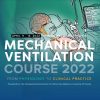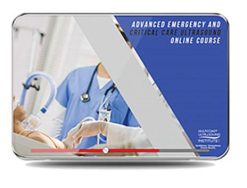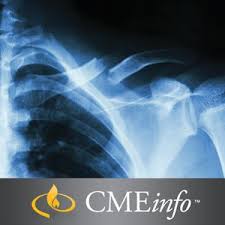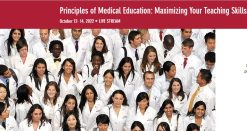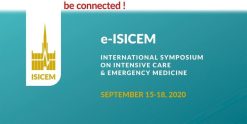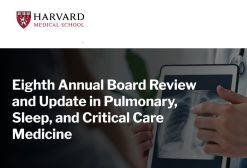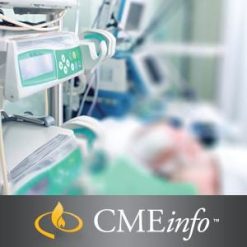Oakstone Comprehensive Review of General Surgery 2022
$20,00
This Product is shared via google drive download link, So please share your correct Gmail id while placing the order .Please note that there are no CME points or certificate associated with this course Samples for Courses Can be found here : Free Samples Here!
Oakstone Comprehensive Review of General Surgery 2022
Enhance Your Knowledge with Online General Surgery CME
Comprehensive Review of General Surgery provides guidance for preoperative, intraoperative, and postoperative management, as well as management of complications. Led by Pardon R. Kenney, MD, clinically-skilled speakers offer direction in selecting operative techniques, outlining the advantages and disadvantages of both open and minimally invasive surgery.
Lectures in this continuing medical education board review cover a broad range of surgical areas (vascular, breast, abdominal, alimentary tract, trauma, etc.) and reinforce important take-home points, including:
- Critical Care. Operative necrosectomy should be the last procedure offered to a patient with necrotizing pancreatitis. Exhaust all other options (percutaneous drainage, endoscopic drainage, video-assisted retroperitoneal debridement) before offering open pancreatic necrosectomy.
- Ethics. Palliative care is not restricted to care at the end of life or for the imminently dying. It’s an focused on improving quality of life that’s appropriate at any stage of serious illness.
- Gynecologic Challenges. Unlike most general surgical procedures, gynecologic surgeries often require fertility considerations before determining the best course of action.
- Tumor Biology. Solid tumors are associated with mutations in proto-oncogenes and tumor suppressors. These mutations disrupt known signaling pathways that are required for normal cellular and immune homeostasis, and often promote a more aggressive tumor behavior. These genetic mutations may be useful therapeutic targets.
49 videos + 2 pdf, size: 20.8 GB
+ Topics:
1. Surgical Infection.mp4
2. Fluids, Electrolytes & Acid-base Disorders.mp4
3. Transfusion Medicine & Anticoagulant Management.mp4
4. Concepts in Anesthesia.mp4
5. Perioperative Care.mp4
6. Head & Neck Evaluation.mp4
7. Thoracic Surgery for General Surgeons.mp4
8. Surgical Critical Care.mp4
9. Ethics.mp4
10. Transplantation.mp4
11. Pediatric Surgery.mp4
12. Arterial Disease.mp4
13. Venous Disease.mp4
14. Vascular Access.mp4
15. Plastic Surgery.mp4
16. Gynecologic Challenges for General Surgeons.mp4
17. Genitourinary Surgery.mp4
18. Tumor Biology.mp4
19. Soft Tissue Sarcoma.mp4
20. Melanoma & Dysplastic Nevi.mp4
21. Adrenal Surgery & Endocrine Dysfunction.mp4
22. Thyroid & Parathyroid Surgery.mp4
23. Benign Breast Disease.mp4
24. Malignant Breast Disease.mp4
25. Paget’s Disease & Male Breast Cancer – Surgical Techniques.mp4
26. General Abdominal Surgery.mp4
27. Abdominal Hernias – Incidence, Cause & Treatment.mp4
28. Incisional Hernia.mp4
29. Benign Gallbladder Disease.mp4
30. Common Duct Diseases.mp4
31. Primary & Secondary Liver Neoplasms.mp4
32. Pancreatic Neoplasms.mp4
33. Inflammatory Pancreatic Disease.mp4
34. Spleen Surgery (Non-Trauma).mp4
35. Benign & Malignant Neoplasms of the Esophagus.mp4
36. Diseases of Gastroesophageal Junction.mp4
37. Gastric Cancer Treatment.mp4
38. Bariatric Surgery & Peptic Ulcer Disease.mp4
39. Small Bowel – Management Challenges.mp4
40. Inflammatory Bowel Disease.mp4
41. Emergencies of the Large Intestine.mp4
42. Colon Neoplasms.mp4
43. Management of Rectal & Anal Cancer & Dysplasia.mp4
44. Anal Fissure & Fistula.mp4
45. Initial Assessment in Trauma & Acute Care Surgery.mp4
46. Thoracic Trauma.mp4
47. Abdominal Trauma.mp4
48. Management of more than 20% TBSA Burns – The First 24 Hours.mp4
49. Top 6 Surgical Gastrointestinal Emergencies.mp4
Questions.pdf
Syllabus.pdf
Related products
CRITICAL CARE / EMERGENCY MEDICINE
CRITICAL CARE / EMERGENCY MEDICINE
Harvard Principles of Medical Education: Maximizing Your Teaching Skills 2022
CRITICAL CARE / EMERGENCY MEDICINE
International Symposium on Intensive Care & Emergency Medicine ( ISICEM ) 2020
CRITICAL CARE / EMERGENCY MEDICINE


